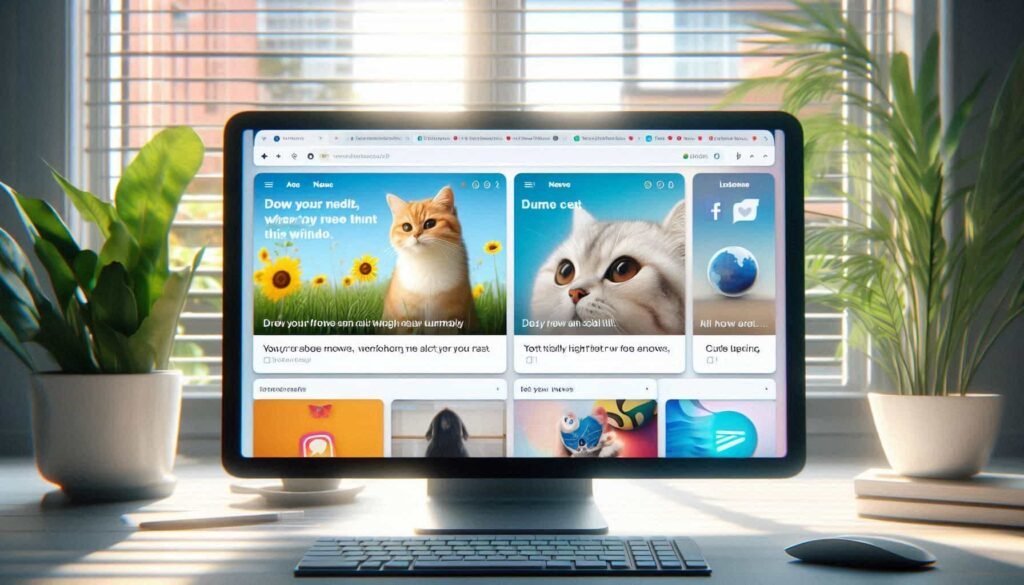
Using the correct terminology and spelling is crucial in the field of technology, where terms can be both specific and complicated. One such often confusing question is whether to spell brouser or browser for computer. For both computer users and tech aficionados, this is a fundamental difference even if it may appear small. Let’s explore the right spelling, its application, and the reasons behind the need of knowing the variations.
What Is a Browser?
An online browser is a software program designed for access to and display of webpages. It serves as a gateway letting users access and see World Wide Web data. Searching for information, checking emails, and enjoying multimedia content on a browser lets you
Among the often used browsers are Google Chrome, Mozilla Firefox, Safari, and Microsoft Edge. Every browser has special abilities and acts as a tool for investigating internet materials.
The Origin of the Term “Browser”
The name “browser” has lengthy history going back to digital technologies. Originally, “to browse” meant to glance at something haversally. Applied in the digital sphere, it becomes of searching and navigating the internet. Developed in the early 1990s, the first web browsers soon embraced this term, effectively establishing “browser” in tech jargon.
Common Spelling Mistake: Why Do People Spell It “Brouser”?
Many people mistakenly spell brouser or browser for computer due to a few common reasons:
- Phonetic Interpretation: English words aren’t always spelled the way they sound. For many, “brouser” might seem to match the sound of the word better.
- Influence of Other Languages: In some languages, the “ou” phoneme is used more frequently than in English, which can lead to this spelling mistake.
- Typing Errors: Since “browser” is often typed quickly, common slip-ups like this can occur.
Understanding English Spelling Rules
English is among the toughest languages to learn completely because of its many spelling rules and exceptions. Adapted for technology or borrowed from another language, words taken from other languages sometimes have unusual spelling. For instance, English demands that it be ” Browser,” even if spelling it “brouser” would make sense.
The Role of Browsers in Modern Technology
Modern technology is mostly dependent on browsers; they are not only means of accessing webpages. From cloud-based apps to online buying, browsers control everything. This dependence emphasizes much more the need of knowing what a browser is and how to spell it!
How Browsers Differ from Other Computer Programs
Unlike programs designed in isolation—such as word processors or games— browsers link users straight to the internet. Their special goal is to produce HTML and other web technologies so that users might interact with websites.
Types of Web Browsers
Browsers fall into different categories based on the device they are used on:
- Desktop Browsers: Designed for computers, these include Chrome, Safari, Firefox, and Edge.
- Mobile Browsers: Optimized for mobile use, they include versions of Chrome, Safari, and specialized mobile browsers like Opera Mini.
Popular Web Browsers Explained
Here’s a closer look at the main web browsers:
- Google Chrome: Known for its speed and versatility, Chrome is a popular choice.
- Mozilla Firefox: Open-source and focused on privacy.
- Safari: Optimized for Apple devices, providing a seamless experience on iOS and macOS.
- Microsoft Edge: Built on Chromium, it combines compatibility and Microsoft’s security.
Choosing the Right Browser for Your Needs
Choosing a browser comes down to speed, security, compatibility, and addons among other things. Every browser possesses special features meant for certain user purposes. Those who value privacy, for example, might favor Firefox, while others might find Chrome’s Google service integration helpful.
Common Features Across Web Browsers
Most browsers today offer similar essential features:
- Security Features: Protect against malicious websites and phishing.
- Speed: Optimization to load pages quickly.
- Extensions: Customizable tools that add functionality.
- Bookmarks and History: Allow users to save and revisit favorite sites.
Improving Your Browser Skills
Getting the most out of a browser is a skill in itself. Here are some tips:
- Use Extensions: Customize your experience with add-ons.
- Learn Shortcuts: Keyboard shortcuts can enhance efficiency.
- Enable Privacy Settings: Adjust your browser’s settings to enhance privacy.
Why Correct Spelling Matters in the Tech World
In technology, linguistic accuracy counts greatly. Knowing the correct spelling helps you avoid misunderstandings and makes searches more successful whether your search is for a browser download or resolving related problems.
Commonly Misspelled Tech Words and Their Correct Forms
To help avoid similar errors, here’s a list of commonly misspelled tech terms:
- Router (not “rouder”)
- Gigabyte (not “gigabite”)
- Ethernet (not “eathernet”)
- Software (not “softwear”)
- Firewall (not “firewal”)
Conclusion
Though it seems small, knowing the proper spelling of “browser” instead of “brouser” shows a greater regard of technical precision. In a field where accuracy rules, every detail—including spelling—counts. Learning tech jargon will help you to communicate more clearly, do research more quickly, and increase your technology expertise.
FAQs
FAQ 1: What is a web browser?
A web browser is a software application that allows users to access and view webpages online.
FAQ 2: Why is it spelled “browser” and not “brouser”?
“Browser” follows English spelling conventions, despite some phonetic confusion that may lead people to spell it “brouser.”
FAQ 3: Which browser is best for privacy?
Browsers like Firefox and Brave are known for their strong privacy features, making them popular choices for security-conscious users.
FAQ 4: Can I use multiple browsers on one device?
Yes, you can install and use multiple browsers, allowing you to choose the best option for each situation.FAQ 5: Are all web browsers free to use?
Yes, most popular web browsers, like Chrome, Safari, and Firefox, are free for users.